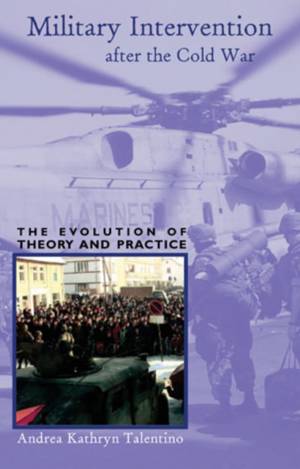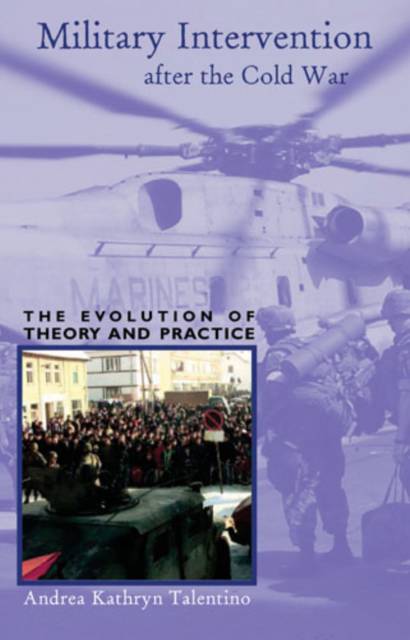
- Retrait gratuit dans votre magasin Club
- 7.000.000 titres dans notre catalogue
- Payer en toute sécurité
- Toujours un magasin près de chez vous
- Retrait gratuit dans votre magasin Club
- 7.000.0000 titres dans notre catalogue
- Payer en toute sécurité
- Toujours un magasin près de chez vous
Military Intervention After the Cold War, 4
The Evolution of Theory and Practice
Andrea Kathryn TalentinoDescription
For hundreds of years, military intervention in another country was considered taboo and prohibited by international law. Since 1992, intervention has often been described as an international responsibility, and efforts have been made to give it legal justification. This extraordinary change in perceptions has taken place in only the space of a decade.
Military Intervention after the Cold War: The Evolution of Theory and Practice explores how and why this change took place, looking at how both ideas and actions changed in the post-Cold War period to make military intervention a tool of international security and a defining characteristic of the international system. Although intervention is often touted as a strategy to rebuild collapsed states, successful interventions are rare. Andrea Kathryn Talentino argues that standards of human rights and responsible governance have become part of the definition of international security. She addresses questions that are vital in the post-9/11 world, where weak and collapsed states are recognized as permissive and at times supportive environments for criminal actors.
The specter of terrorism has further emphasized the need to understand why military intervention is undertaken and how it could be more effective. Scholars, graduate and undergraduate students, and readers interested in understanding global interdependence will find Military Intervention after the Cold War an indispensable book.
Spécifications
Parties prenantes
- Auteur(s) :
- Editeur:
Contenu
- Nombre de pages :
- 376
- Langue:
- Anglais
- Collection :
- Tome:
- n° 4
Caractéristiques
- EAN:
- 9780896802452
- Date de parution :
- 01-10-05
- Format:
- Livre broché
- Format numérique:
- Trade paperback (VS)
- Dimensions :
- 209 mm x 216 mm
- Poids :
- 426 g







